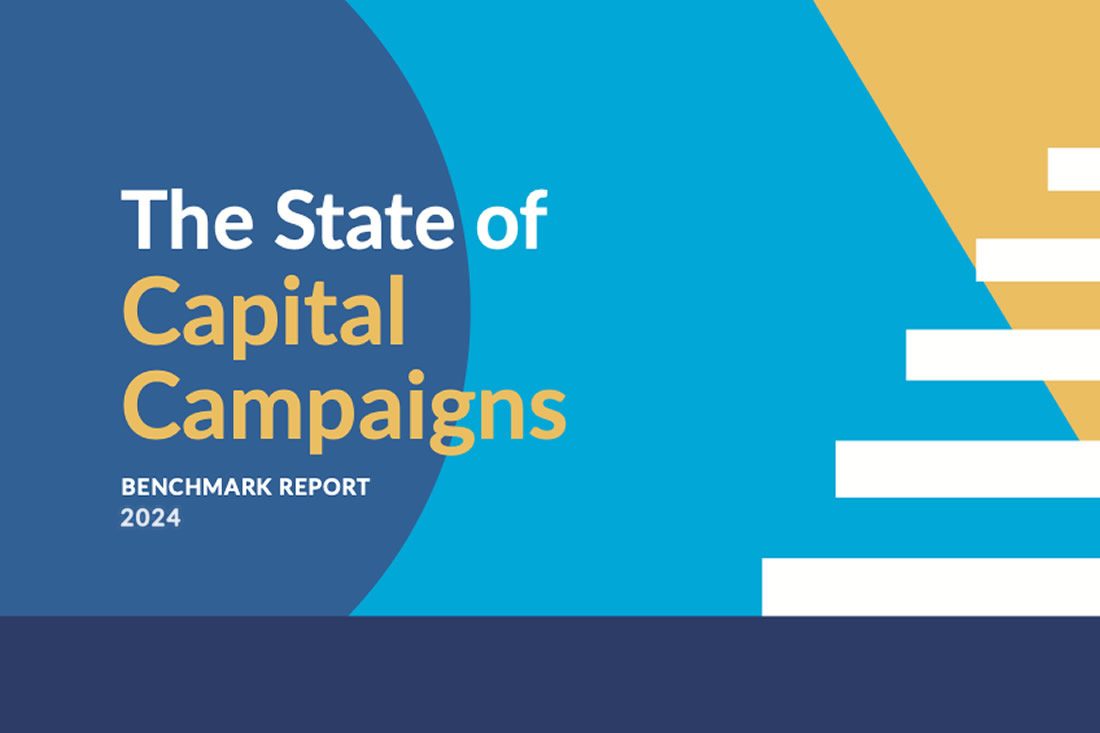Attention Campaign Consultants: Redefine a SUCCESSFUL Capital Campaign

Do you ever look back on your life so far and wish you had been more courageous? Do you wonder what you might have accomplished if you had just gone for more?
Today’s post is something of a confession. I come clean about a personal regret — one that I hope you can learn from.
Here in this post, I share what I’ve learned — in the hopes that, whether you’re a consultant or you lead an organization, I might inspire you to grasp the opportunity to have the courage to think beyond what is comfortable as you plan your capital campaigns.
My Biggest Consulting Mistake Ever
I began my work as a capital campaign consultant in 1984. Over the next three decades, I worked with many dozens of organizations, advising them on their capital campaigns.
I worked with both small orgs and big orgs. Arts orgs, social service orgs, and education orgs. Over those many years, the campaigns I worked on were remarkably successful.
Perhaps you think I’m tooting my own horn a bit too loudly. But hang with me for a minute. In fact, I think my track record of successful campaigns points to a serious problem — one that I wish I had considered far earlier in my career.
How Could a Rash of Successful Campaigns be a Problem?
Allow me to explain…
I think that some — perhaps many — of those successful campaigns were successful because I encouraged those clients to pick modest goals. I suspect that many of those organizations could have raised more money, had I encouraged them to dream bigger and have the courage to shoot for a bigger goal.
I wonder if my personal aversion to risk led my clients to set their sights too low.
I wonder what would have happened if, instead of settling for a safe campaign goal, I had encouraged them to think bigger — even if it meant that they might have to lower their sites before the public phase of the campaign.
Those recent musings and regrets are what led me to write this post.
First, though, I extend an apology to the organizations that, with a more courageous consultant, might have raised more money. The lessons I have learned about being courageous and audacious and taking risks have evolved over these many decades.
If only I had begun my career knowing what I know now. Yes, alas, it’s an old person’s regret.
The Importance of Thinking from Abundance Now and Again
What could your organization do if you had enough money to do it?
I don’t mean that as a frivolous question, but as a real opportunity to imagine how your organization might do more or do it better?
That kind of thinking, beyond the standard financial constraints, requires mental muscles you may not use often if your job year after year is to make sure your organization operates on a balanced budget.
But give yourself and your team permission to imagine what might be possible. That kind of thinking isn’t everyone’s cup of tea. But I’ve learned its power over the years.
You see, donors give more generously to exciting ideas as long as they are also rooted in real possibility. And if you don’t start off with a compelling, inspiring plan, your fundraising is sure to be less successful than it might be.
Test the Campaign Goal During the Quiet Phase
The majority of the money raised during a capital campaign is committed during what is usually called the “quiet phase” of the campaign. That’s the period when you solicit the people who have the capacity to give the largest gifts.
That “quiet phase” of the campaign happens after your feasibility study and once you have a campaign plan. During that quiet phase, you are raising money toward a preliminary campaign goal.
If you’ve developed an ambitious and exciting plan, a preliminary campaign goal (or working goal, as it is often called) will be based on what it would take to make that ambitious plan a reality.
During that early phase, you will work to secure the top 10 to 20 gifts for your campaign. Together, those gifts will amount to well over 50% of your campaign goal.
This phase of the campaign is called the “quiet phase” because you don’t publicly announce the campaign goal. The project and the campaign are not secret during this phase. But you do not publicly specify the final fundraising goal of the campaign.
Why Shouldn’t You Announce the Campaign Goal?
Because if your lead gift solicitations are more successful than you had envisioned, you may wish to increase the goal. And if they are not as successful, you may wish to lower it.
The Quiet Phase gives you a chance to pull your vision and campaign plan into alignment with what is possible.
If your aspirational plan has inspired donors to give large gifts, you’ll be on your way to raising enough money to accomplish them. But if you find that your aspirations have outstripped the capacity and inclination of your largest donors, you’ll be able to temper your goal.
Therefore, encourage your clients to shoot for a larger goal during this quiet phase. Help them understand that they will be able to adjust it before announcing the public phase of the campaign.
The REAL Definition of a Successful Campaign
While you won’t share your early working goal publicly, you will share it with your board and your largest donors. So it’s easy to think that to be successful, your campaign must reach the goal you initially set.
Yet, I’ve come to rethink that definition.
You see, I’ve learned over these years that reaching a modest campaign goal set early in the campaign is not a good indicator of success. I’ve come to think that all of those campaigns I guided to modest campaign goals were in fact not as successful as they might have been.
4 Items that Dictate a Campaign’s TRUE Success
Instead, I now believe that the success of a campaign should be based on these four items. To achieve real campaign success, you should be able to check off each of these boxes.
- You tested a goal that was ambitious enough to inspire donors to give real stretch gifts.
- You tested the limits of your fundraising potential and then adjusted the goal accordingly.
- You reached or exceeded the adjusted campaign goal.
- And finally, when the campaign was over, the board and staff had learned the powerful lessons of capital campaign fundraising that they can use in the future.
A Final Piece of Advice for Campaign Consultants
As a former campaign consultant, I know what it’s like. Your own success is on the line with every client. Their success becomes your success — and conversely, their failure becomes your failure.
No one wants to fail. Not you. Not your clients.
That’s why we’ve adapted our standard Capital Campaign Pro for nonprofits into something special for consultants like you:
If this post spoke to you at all, I encourage you to click the link above and take a closer look. It could work wonders for your consulting practice.



Leave a Comment